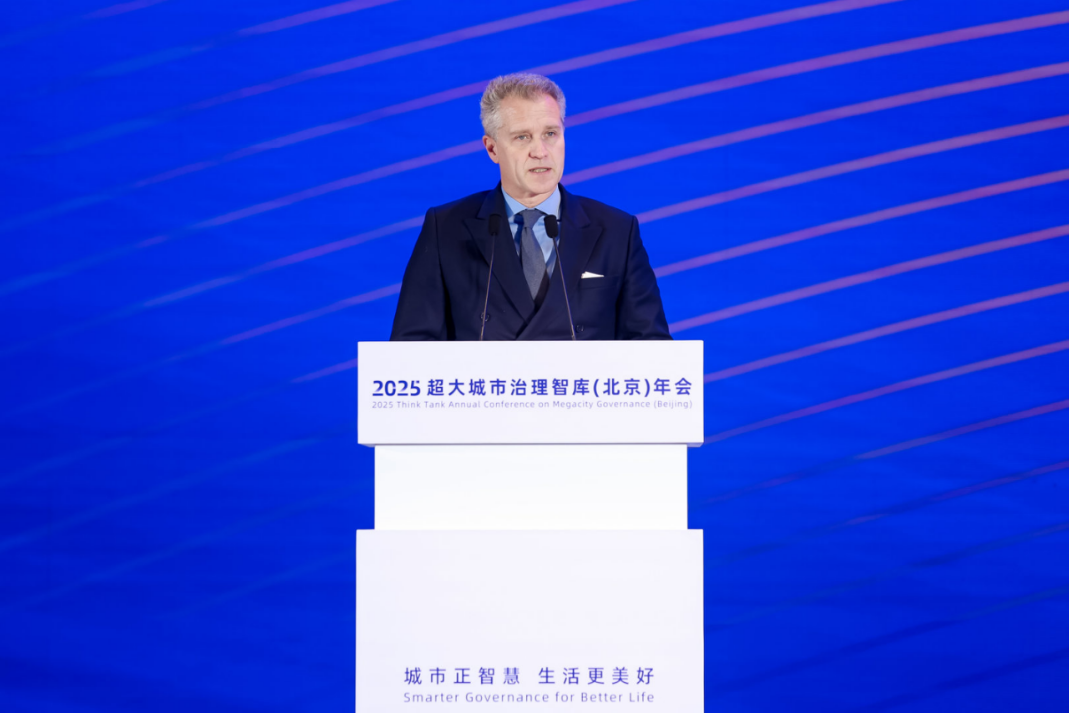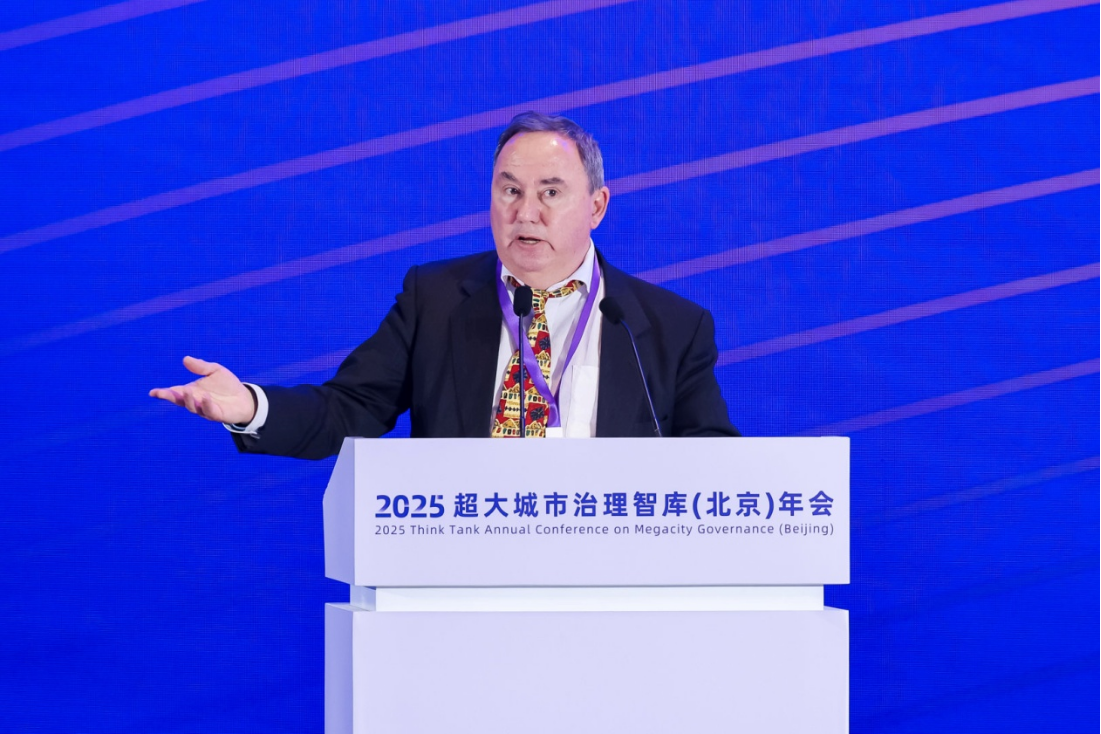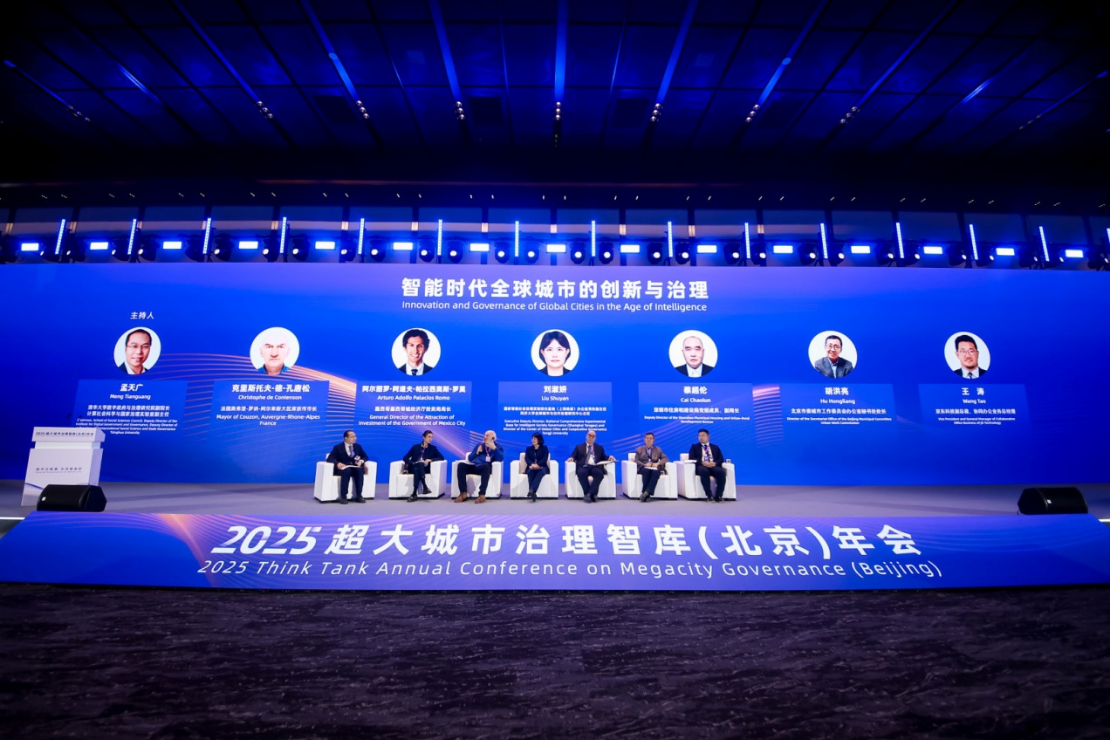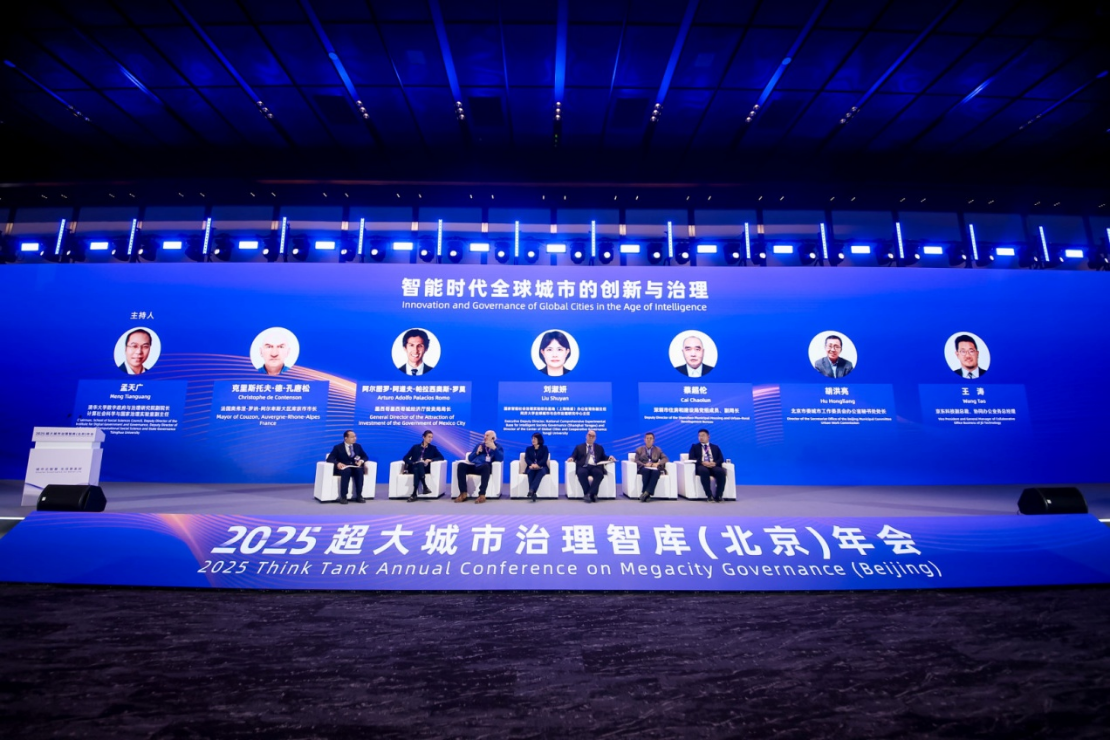BEIJING, Nov. 17 (Xinhua) -- With the goal of harnessing global insights on governing megacities and fostering international exchange and practical cooperation, the 2025 Think Tank Annual Conference on Megacity Governance (Beijing), jointly organized by the Xinhua Research Center for Digital Government and the Institute for Digital Government and Governance, Tsinghua University, was held in Beijing on Sunday.
Under the theme "Smarter Governance for Better Life", the event brought together over 200 experts, scholars, and urban governance practitioners from across the world. Participants shared their insights on megacity governance, helping to guide the future development of urban civilization.
In a video address, Zhu Juwang, Director of the Division for Public Institutions and Digital Government of the United Nations Department of Economic and Social Affairs, noted that while megacities are becoming key engines of economic development, they also face growing resource pressures. The future of global sustainable development largely depends on the governance of these megacities.
On the topic of coordinated governance among cities, Petr Bystron, Member of the European Parliament, emphasized that despite differing developmental contexts in Europe and China, both regions confront comparable challenges. By learning from one another's advantages and building upon accumulated experience, the two sides can work together to develop solutions that promote global development.

Photo shows Petr Bystron, Member of the European Parliament, delivering a keynote speech.
Ötüken Senger, Mayor of Kars of Türkiye, highlighted that in the age of the Internet, the scope of urban governance extends beyond mere physical boundaries. The integration of digital and physical infrastructures is increasingly influencing urban competitiveness. He called for international cooperation to promote collective prosperity and sustainable development.
Quentin Parker, Director of the Laboratory for Space Research, University of Hong Kong, shared insights on how emerging aerospace technologies can empower the development of smart cities. He emphasized the critical importance of megacity governance, noting that 21st-century urban development should focus on smart cities, as the growth of megacities depends on smart city governance. Technologies such as remote sensing, sensor networks, and artificial intelligence can be applied to manage urban infrastructure.

Photo shows Quentin Parker, Director of the Laboratory for Space Research, University of Hong Kong, presenting on emerging aerospace technologies for smart cities.
In the roundtable session, participants engaged in a dialogue on innovation and governance in global cities in the age of intelligence, sharing their insights on the concept of an ideal city.

Photo shows the scene of the roundtable discussion at the 2025 Think Tank Annual Conference on Megacity Governance (Beijing).
Christophe de Contenson, Mayor of Couzon, Auvergne-Rhone-Alpes, France, remarked that an ideal city is one that embraces everyone, especially people with disabilities, young people, and the elderly. In such a city, people enjoy a good quality of life, and everyone has the chance to grow and flourish freely.
Arturo Adolfo Palacios Romo, General Director of the Attraction of Investment of the Government of Mexico City, stated that in an ideal city, technological innovation is not an end in itself but a means to reduce social inequality, offering people a more accessible, convenient, and efficient way of living. (Edited by Yang Yifan with Xinhua Silk Road, yangyifan@xinhua.org)




 A single purchase
A single purchase









